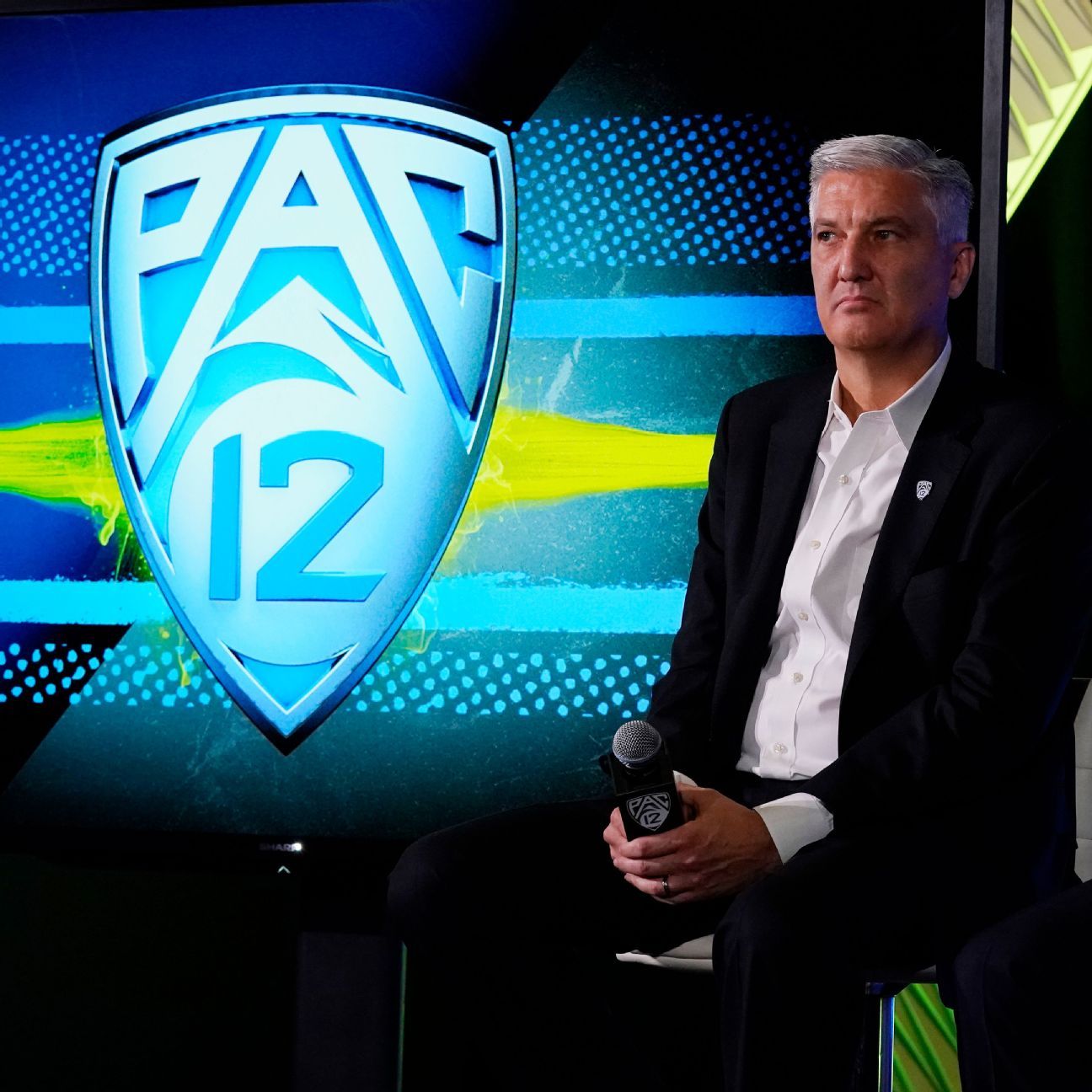In a letter provided to the University of California Board of Regents ahead of a closed-door session Thursday to discuss UCLA‘s proposed move to the Big Ten conference, Pac-12 commissioner George Kliavkoff detailed “significant concerns” he had with the move, including its effect on student-athlete mental health, increased travel and operational costs, and negative impacts on both Cal’s revenue and the UC system’s climate goals.
Klivakoff’s letter was provided in response to a request from the regents for the conference’s perspective on UCLA’s move, according to a source.
“Despite all the explanations made after the fact, UCLA’s decision to join the Big Ten was clearly financially motivated after the UCLA athletic department managed to accumulate more than $100 million in debt over the past three fiscal years,” Kliavkoff wrote.
He said the increased revenue UCLA will receive would be completely offset by higher costs coming from added travel, the need for competitive salaries within the Big Ten and game guarantee expenses.
“UCLA currently spends approximately $8.1 million per year on travel for its teams to compete in the Pac-12 conference,” Kliavkoff said. “UCLA will incur a 100% increase in its team travel costs if it flies commercial in the Big Ten ($8.1 million increase per year), a 160% increase if it charters half the time ($13.1 million per year), and a 290% increase if it charters every flight ($23 million increase per year).”
Kliavkoff did not cite how those figures were calculated or indicate if there was genuine belief that UCLA would consider charter travel for teams other than football and basketball.
According to a source familiar with UCLA’s internal estimates, the school is working with the expectation that it will spend about $6-10 million more per year on travel in the Big Ten vs. the Pac-12.
Moving to the Big Ten, Kliavkoff speculated, would also lead to UCLA spending more on salaries to fall in line with conference norms. He estimated UCLA would need to increase its athletic department salaries by about $15 million for the university to reach the average in the Big Ten.
“Any financial gains UCLA will achieve by joining the Big Ten will end up going to airline and charter companies, administrators and coaches’ salaries, and other recipients rather than providing any additional resources for student-athletes,” Kliavkoff said.
A spokesperson for UCLA declined comment.
The university system regents have met several times about the move, including a meeting on Thursday. They have not said whether they can or will cancel UCLA’s move, but several regents and California governor Gavin Newsom (an ex-officio board member) have questioned UCLA’s decision.
UC president Michael V. Drake told the Los Angeles Times on Thursday that UC officials did not stray from established policy, which includes allowing individual campus chancellors to make decisions involving athletics. The regents are also concerned about the impact of UCLA’s move on UC Berkeley, which figures to lose more than $10 million annual in revenue due to UCLA’s move, according to an estimate the regents received at a meeting last month.
Drake, who was previously the president at Ohio State, said in an interview with the New York Times, “No decisions. I think everybody is collecting information. It’s an evolving situation.”
Beyond the financial impact for UCLA, which is widely understood to be the driving factor in its planned move, Kliavkoff said it will also hurt Cal, which is also part of the UC system. With media rights negotiations ongoing, Kliavkoff said it was difficult to disclose the exact impact without revealing confidential information but confirmed the Pac-12 is soliciting bids with and without UCLA in the fold.
Beyond the financial component of the added travel, Kliavkoff said “published media research by the National Institutes of Health, studies conducted by the NCAA, and discussions with our own student-athlete leaders” show the move will have a negative impact on student-athletes’ mental health and take away from their academic pursuits. He added that it would also be a burden for family and alumni to face cross-country trips to see UCLA’s teams play.
Finally, Kliavkoff said added travel runs contrary to the UC system’s climate goals and works against UCLA’s commitment to “climate neutrality” by 2025.
